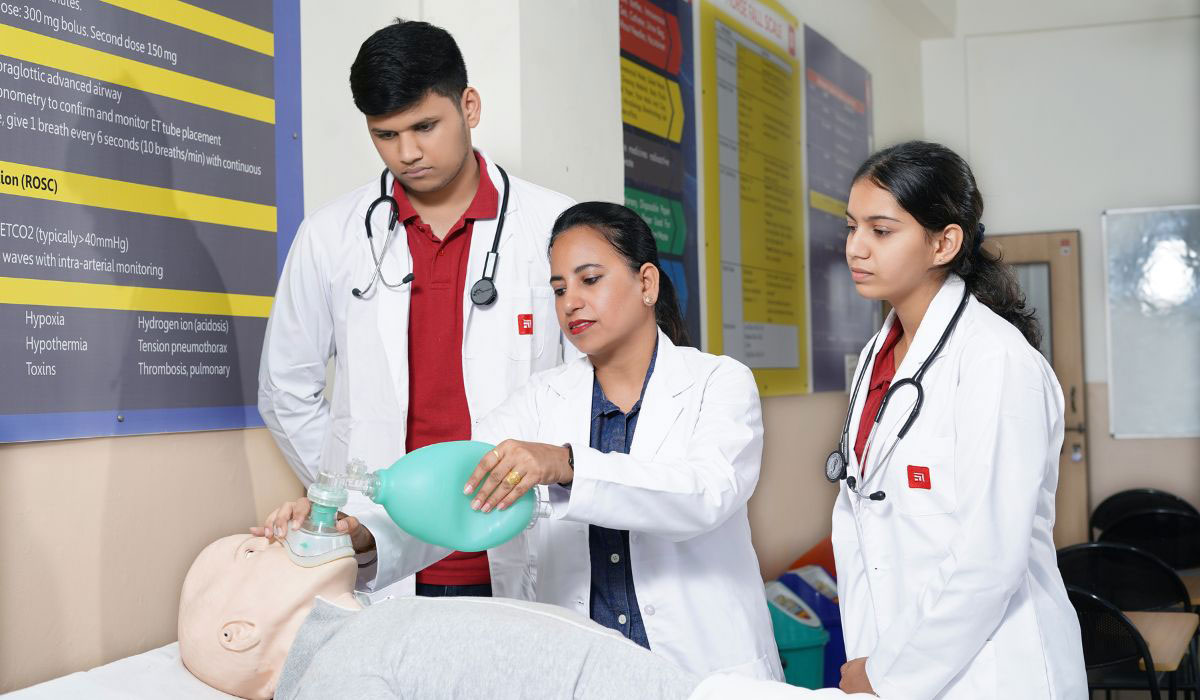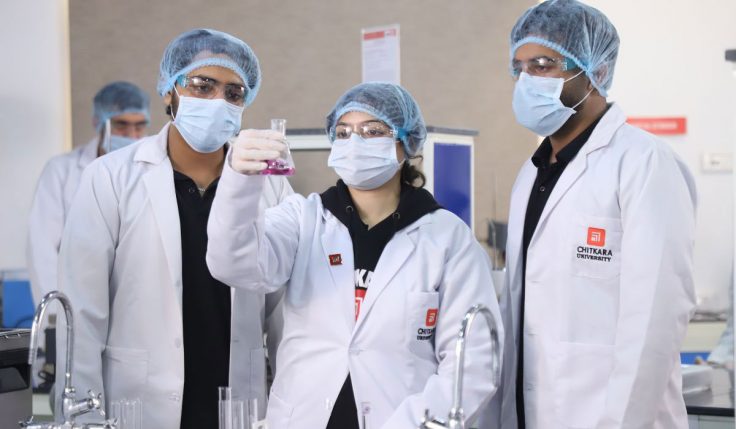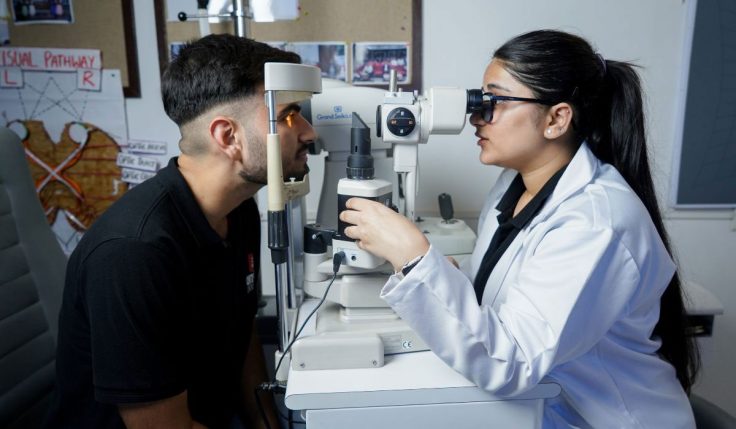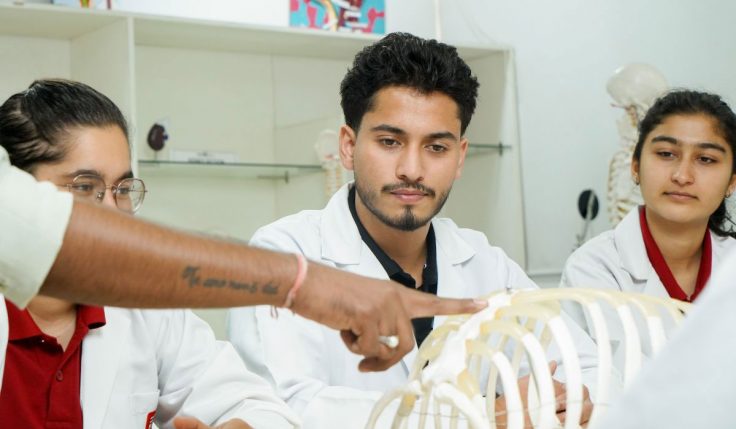In the dynamic and ever-evolving field of healthcare, the role of nurses has expanded beyond traditional boundaries. As frontline caregivers, nurses are integral to patient outcomes and the overall quality of healthcare services. Pursuing postgraduate nursing courses is essential to meet healthcare demands and advance expertise, ultimately enhancing patient care. This blog delves into postgraduate nursing education, course options, and its crucial impact on professional growth and patient care.
The Importance Of Postgraduate Nursing Education
Postgraduate nursing courses provide advanced training that builds on the foundational knowledge gained during undergraduate studies. These programs aim to equip nurses with specialized skills, advanced clinical knowledge, and leadership abilities. The main goals of postgraduate nursing education are to:
1. Specialization and Expertise
Postgraduate courses allow nurses to specialize in areas such as critical care, oncology, pediatrics, mental health, and more. This specialization enhances their ability to provide targeted and effective care for patients with specific health needs.
2. Leadership and Management
Advanced nursing education often includes training in leadership, management, and healthcare policy. This prepares nurses to take on leadership roles within healthcare organizations, contributing to better decision-making and improved patient care delivery.
3. Research and Evidence-Based Practice
Postgraduate programs emphasize the importance of research and evidence-based practice. Nurses learn to critically analyse research findings and apply them to clinical practice, ensuring that patient care is based on the latest and most reliable evidence.
Types Of Postgraduate Nursing Courses
There is a wide range of postgraduate nursing courses available, catering to various interests and career goals. Some of the most popular and impactful courses include:
1. Master of Science in Nursing (MSN)
The Master of Science in Nursing (MSN) program helps registered nurses (RNs) develop advanced clinical and administrative skills. Students can specialize in areas such as family nurse practitioner, nurse educator, nurse anaesthetist, or nurse administrator.
2. Doctor of Nursing Practice (DNP)
The DNP is a terminal degree that focuses on clinical practice rather than research. It prepares nurses for the highest level of clinical practice, leadership in healthcare organizations, and policy advocacy.
3. Postgraduate Certificates
These programs are ideal for nurses who already hold a master’s degree but wish to gain additional expertise in a specific area, such as gerontology, palliative care, or informatics.
4. Master of Nursing (MN)
Similar to the MSN, the MN program provides advanced clinical and theoretical knowledge. It often includes specializations in clinical practice, research, or education.
5. PhD in Nursing
This program focuses on research and prepares nurses for careers in academia, research institutions, and high-level policy-making positions. It emphasizes developing new nursing knowledge through rigorous research.
Impact On Professional Development And Patient Care
Pursuing postgraduate nursing courses enhances nurses’ growth and improves the quality of care they provide to their patients. Here’s how:
1. Career Advancement
Advanced learning and certifications are gateways to advancement to senior positions, in areas such as education, management, and various clinical settings. Of equal significance is the fact that it improves career entitlements while promoting professional visibility and remunerations.
2. Improved Patient Outcomes
Nurses with higher education acquire skills and understanding of skillful care delivery of high standard. Such improved outcomes range from decreased mortality to reduced complications, and increased patient satisfaction tenets.
3. Leadership and Innovation
Education empowers nurses to become leaders in the healthcare arena, initiating and leading change in policy and practice that enhances the quality of patient care. They are the patient safety champions, and promoters of quality improvement and delivery.
4. Research Contributions
Education also plays a role concerning research where postgraduate educated nurses contribute to the body of nursing knowledge. It assists in determining the existing models to learn about the novel interventions if they are part of your healthcare practice, in developing healthcare policies that define the prospect of nursing and patient care.
5. Professional Empowerment
The presentation of higher education in nursing education empowers the nurses with the right confidence to make decisions as well as collaborate with other healthcare professionals and advocate for patients.
The M.Sc Program At Chitkara University
2-Year M. Sc in Nursing at Chitkara University: Climbing the organizational ladder many years ago is no guarantee that you can do the same today, let alone in the future as the market changes and evolves more rapidly than most organizations are willing to admit.
Chitkara University’s 2-Year M.Sc. Nursing program aims to meet the growing demand for skilled nurses in the healthcare sector. The program offers specializations in Medical-Surgical Nursing, Psychiatric Nursing, Community Health Nursing, Pediatric Nursing, and Obstetrics & Gynaecological Nursing. The curriculum combines theoretical learning with practical sessions, including a six-month internship for hands-on experience.
Ultimately, the M.Sc program at Chitkara University provides diverse opportunities for students. The Nursing program at Chitkara University is thorough and up-to-date, offering a solid educational base for advanced nursing practice and leadership in the profession. The curriculum ensures the development of skilled individuals in the healthcare industry who will increase patient care and improve the overall health sector by combining theoretical knowledge with practical training.
This program is specifically designed for nurses seeking to enhance their nursing practice and assume increasingly demanding responsibilities and positions within their field of operation. Unlock your full potential and advance your nursing profession with Chitkara University’s M.Sc in Nursing.
Partnerships With Top Organizations
Students gain the latest healthcare insights through partnerships with top organizations like FORTIS and Mohali G TBN Institute of Health Sciences. The focus on investigation, scientific knowledge, and leadership prepares graduates for roles as nurse specialists, educators, managers, and researchers. The program bridges theory and practice with hands-on sessions in a well-equipped biochemical lab and clinical settings. Nursing graduates can pursue various roles, including Cardiac Nurse, Community Health Nurse, Critical Care Nurse, Nurse Administrator, and Nurse Educator. The university’s renowned campus recruitment hub offers swift job prospects in leading hospitals such as Apollo, Fortis, and Medanta, as well as other esteemed medical institutions in India.
Conclusion
In conclusion postgraduate nursing courses are pivotal in shaping the future of nursing and healthcare. By expanding expertise and enhancing skills, nurses are better prepared to meet the complex demands of modern healthcare. Postgraduate-educated nurses enhance patient care and advance the profession through specialized practice, leadership, and research contributions. Investing in advanced nursing education advances careers and significantly enhances healthcare quality and patient well-being globally.






